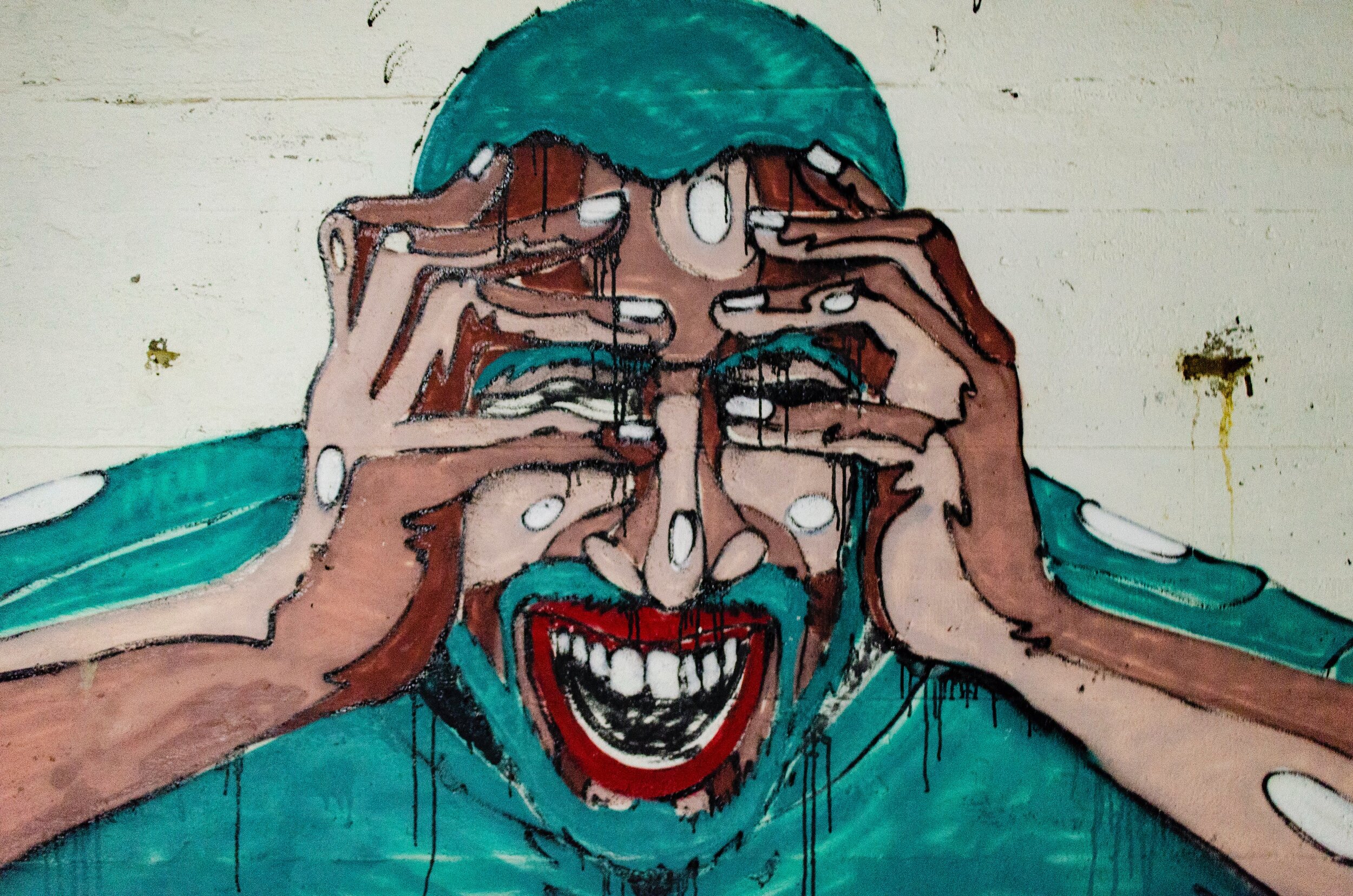Are you out of your mind?
Image: Aaron Blanco Tejedor
If you're anything like most people I know, you're no stranger to moments — maybe even weeks or months — of feeling overwhelmed. Crazy busy. Like a carnival has unfolded all around you and somehow you ended up as the juggling act.
This is, as it turns out, not the most effective way to go through life.
Most of us know this.
And yet, when you’re unable to move forward, when you’re not making decisions, when you feel stuck, stressed or overwhelmed by what’s happening in your life or your workplace, this is exactly the space you're in. Mostly, when this happens, the instinct is to keep at it.
But rather than pushing forward, it’s a really a time to reset and acknowledge what’s really happening.
You have momentarily lost touch with reality. You're not fully here.
This in-between, disconnected space is the very place where big action — and growth — is possible, if you can allow it to be. It is here where what you need and what you can do next are stepping out of the shadows and revealing themselves.
Of course, it’s not always easy to see it this way.
Overwhelm can feel like it’s running our lives and we’re left running behind trying to catch up. Stuckness can feel like slogging through heavy mud and getting nowhere fast. Stress unleashes a host of chemical and physical responses.
How do you dismantle the overwhelm and pull apart the stuck places? How do you pull the curtain and let that next step reveal itself? How can you start to break down the habits that bring you back to the same frustrating place? Awareness, that’s how.
While the inner dialogue that you are stuck, you are overwhelmed, you are not in control, you don’t know what to do can be loud, it’s also one small channel of awareness that’s taken over.
Instead of letting that one piece dictate your experience, let’s consider what's possible when you allow yourself to take a step back and tune into a number of other channels of awareness.
Here are 4 channels to start with the next time you feel stressed or stuck:
What you feel in your body.
Typically, when we’re in a stress state, we’re not all that tuned in to our physical body. We’re more often operating in our head, planning all that stuff we’re supposed to be doing (or being) and judging our performance. Find your feet on the floor or notice how you’re sitting. Wiggle your toes to bring your attention there. Tune into where you feel tension and see if you can relax those areas. Notice where is it not showing up? Where are the free, clear places in your body that you can draw on to come back to yourself and your physical presence.
What you’re physically doing.
As you feel that moment of stress or overwhelm, stop in your tracks. What are you doing right now? Are you mindlessly scrolling or inhaling a coffee while cranking through your to-do list? Crunching your shoulders at your desk for hours on end while you complete that big project? Raising your voice? Avoiding a task or conversation? Leaning menacingly across the table as you try to make a point? Checking out completely? Take a moment to observe where you are and what’s happening.
The emotions you're feeling.
Often, we say that we’re feeling stressed or stuck, but neither of these are emotional states. They’re judgments and characterizations about a situation. Check in with how you feel. What emotions are present for you? Maybe you feel frustrated, fearful, apprehensive, angry, pensive, annoyed, distracted. All emotions have information to relay. What are yours telling you?
How you’re relating to others.
How are you perceiving others who may be connected to your situation? What story are you telling about them and about this situation? Perhaps there is concern or mistrust. Perhaps you're looking to please or meet expectations. Maybe there is some comparison going on. Are you communicating in the way that you intend to or prefer to communicate? Might another approach or message change your experience?
The next time that you feel stressed, overwhelmed or stuck, give yourself a time out to notice what is happening. Check in with your body, your actions, your emotions, and how you’re relating. What's different when you take a moment to tune back into the full reality?
What becomes clearer about what you need and what actions to take to improve the situation?
Practicing these small moments of awareness can help you interrupt yourself and come back whenever you've essentially left the building. With practice, a habit of tuning in can help to build a more centered, resilient state of calm that disrupts overwhelm, reduces stress and dismantles stuckness. It can help you to build more presence in your relationships and with yourself. It can make you a more mindful and effective leader.
I encourage you to try a few field experiments with this. If you’re practicing it regularly, you might even journal about what you notice and what you experience. I’d love to hear what you discover.







